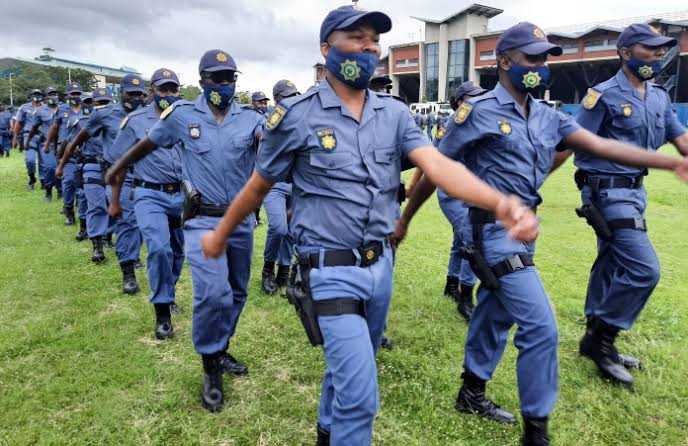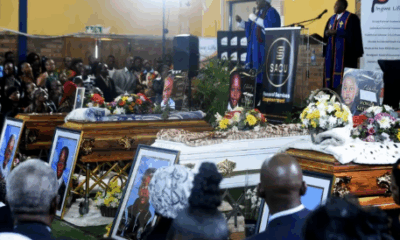News
South Africa’s Policing Crisis: Why Rogue Cops Rarely Face Consequences

New study reveals SAPS officers are rarely punished for serious misconduct and public trust is eroding
A new wave of concern is washing over South Africa’s criminal justice system following damning revelations about the SAPS’s internal disciplinary failures. According to recent research, thousands of police officers charged with misconduct and even criminal behaviour remain in their jobs, facing little to no consequences.
The study, compiled by independent researcher David Bruce and released in collaboration with the Institute for Security Studies (ISS), examined 7,946 SAPS disciplinary cases from 2019 to 2024. Shockingly, in 77% of those cases, officers walked away without any sanction. Only 10% were dismissed.
The findings have reignited debates about the culture of impunity in the police service — and have sparked national conversations about what happens when those tasked with upholding the law repeatedly break it without consequence.
Alarming Patterns of Abuse and Inaction
The data, sourced from SAPS annual reports and the Safety and Security Sectoral Bargaining Council (SSSBC), paints a disturbing picture of internal justice in the police force. Allegations of excessive force, corruption, and even rape are reportedly met with leniency, inconsistency, or outright inaction.
In fact, during the 2023/24 financial year, the Independent Police Investigative Directorate (IPID) received 3,176 reports of serious assault and 273 reports of torture — yet only 55 internal convictions for assault and 10 for unlawful force were recorded by SAPS. The actual sanctions handed out in those cases? Unclear. Not publicly disclosed.
Highway Assault Case: A Catalyst for Concern
Public outrage recently spiked when SAPS VIP protection officers — those assigned to Deputy President Paul Mashatile — were acquitted internally for allegedly assaulting a motorist in a highway incident caught on video. Though the criminal case is still active, their internal exoneration was viewed by many as a classic example of institutional self-protection.
“There are countless examples of police who transgress in very serious ways, but they are still at work,” said Ian Cameron, chairperson of Parliament’s Police Portfolio Committee. “One officer was caught with drugs — out on bail and back at work. Another admitted to armed robbery and only received two months’ unpaid leave.”
Inside the Broken System
The research delves into why the disciplinary system is failing. One key issue is that presiding officers in SAPS hearings are often poorly trained, legally uninformed, and frequently colleagues of the accused officers. This creates a toxic combination of conflict of interest, incompetence, and favouritism.
At the SAPS Policing Summit in April, even police trade unions admitted that disciplinary outcomes are influenced by internal politics, not objective legal standards. Some admitted that officers with powerful allies rarely face consequences, while others are targeted arbitrarily.
Official Denial vs On-the-Ground Reality
Responding to the findings, SAPS spokesperson Brigadier Athlenda Mathe disputed the study, claiming that the police do discipline errant officers. She stated that over 2,000 dismissals occurred in five years, including 23 officers dismissed for rape in 2023 alone.
But policing experts say the numbers don’t tell the whole story. While SAPS may take action in high-profile cases, the overall system remains broken a view echoed by justice activist Mary de Haas.
“You have a lot of people in SAPS who are not qualified for management,” de Haas said. “Political appointments have tainted leadership. A lot of good officers have been fired or sidelined, while underqualified ones protect each other.”
The Cost of a Culture of Impunity
The ultimate casualty of this systemic failure? Public trust.
South Africans already live with one of the highest crime rates in the world. Knowing that the police themselves face little accountability only deepens cynicism and fear.
And for victims of police violence often from poor or marginalised communities, the message is devastatingly clear: You’re on your own.
What Needs to Change?
The study recommends an overhaul of the SAPS disciplinary system:
-
Training and independence for presiding officers
-
Clear standards on acceptable use of force
-
External oversight
-
Transparency around outcomes and sanctions
But at its core, the issue is not just about rules, it’s about political will, leadership integrity, and a renewed commitment to constitutional policing.
As long as rogue officers are protected and whistleblowers or victims are ignored, the rot will continue and justice, for many, will remain out of reach.
{Source: IOL}
Follow Joburg ETC on Facebook, Twitter , TikTok and Instagram
For more News in Johannesburg, visit joburgetc.com



























